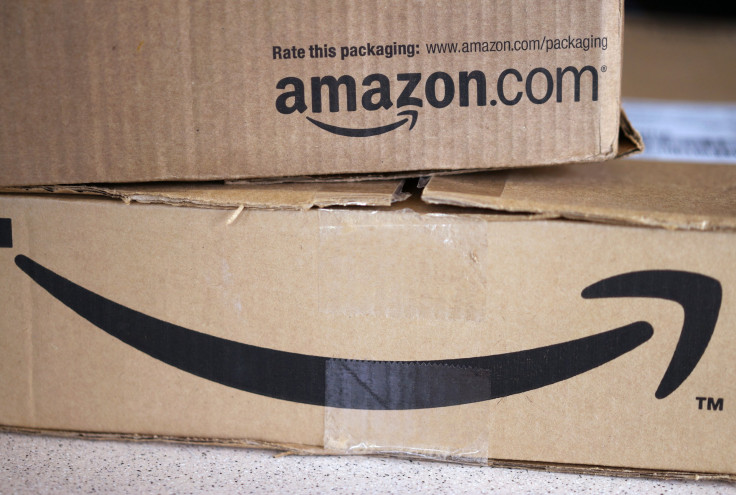Amazon To Offer Blockchain-As-A-Service To Its Enterprise Cloud Clients

In 2017, nothing was hotter than cryptocurrencies. Over a 12-month span, the aggregate value of digital currencies soared by almost $600 billion, which works out to more than 3,300% on a percentage basis. At the heart of it, all was the emergence of blockchain technology.
Blockchain Takes Center Stage
Blockchain technology is officially the digital, distributed, and decentralized ledger responsible for recording transactions without the need for a financial intermediary. But in plainer English, it represents a new way of transmitting money without using traditional banking networks, as well as a means of recording data in an immutable (unchanging) manner. This latter point is important, as it demonstrates that blockchain has applications that extend beyond just the financial services industry.
This article originally appeared in the Motley Fool.
Why is blockchain suddenly the greatest thing since sliced bread? Namely, it brings a handful of advantages to the table that enterprises appreciate. To begin with, as a decentralized network -- meaning data is stored on computers all over the globe as opposed to in a central location -- it ensures that no single entity, be it a business or cybercriminal, can gain control of a network.
Second, it removes banks from the equation, at least when talking about its currency-based applications. Cutting banks out means not having to pay them a third-party fee, which can reduce overall transaction costs.
Third, and sticking with its currency applications, blockchain also offers the ability to expedite the validation and settlement of transactions. Today's banking networks can take up to five business days to validate and settle cross-border transactions. With blockchain, these transactions could be verified in a matter of seconds.
Lastly, since blockchain is immutable, any efforts to change logged data would be noticed by members of the community or within an organization. This makes blockchain data especially secure.
Introducing Amazon's Latest Foray: Blockchain-As-A-Service
It's these advantages that have companies in a multitude of industries and sectors testing blockchain. Even the king of e-commerce, Amazon (NASDAQ:AMZN), hasn't been able to resist the temptation that is blockchain.
Known first and foremost as a massive online retailer, Amazon has branched out into the grocery aisle through its Whole Foods purchase and into cloud-computing through Amazon Web Service (AWS). Now, it's planning to offer blockchain-as-a-service (BaaS) to its AWS business customers.
Last week, Amazon announced that it was partnering with Kaleido, a start-up company that'll help Amazon bring blockchain options to AWS enterprise members. The beauty of BaaS is that it won't require learning a new coding language or even being a coding genius. Kaleido will work with Amazon to create simple building blocks that'll allow enterprises to incorporate blockchain into their cloud platforms rather than having to start from scratch with each new client. BaaS will allow businesses to demo their ideas, run proof-of-concept applications, and perhaps even take their idea out into the real world.
Ethereum's blockchain is what'll ultimately be underlying this BaaS venture. Joseph Lubin is the brain behind ConsenSys, a blockchain incubation project of which Kaleido was born, and he also happens to be the founder of the Ethereum blockchain. So, putting two and two together, it's only logical that this project be based on the Ethereum network.
What makes Ethereum such a popular choice among enterprises is the fact that its network incorporates smart contracts. These are completely customizable protocols that act as legally binding commands that can be dictated by a company, such as defining when new product will be ordered or when money can be spent. Smart contracts are considerably more efficient than using paper and, as noted, more legally binding.
Looking beyond AWS, it's possible that Ethereum's blockchain could offer Amazon a way to monitor its supply chains in real time, as well as provide a means to expedite cross-border payments so as to improve cash flow.
Even The Mighty Amazon Can't Overcome Blockchain's Proof-Of-Concept Conundrum
While getting Amazon involved in blockchain is certainly great news for this burgeoning technology and cryptocurrencies in general, it's still not enough to overcome what I like to call the proof-of-concept conundrum.
Over the past couple of years, blockchain has successfully been tested in a number of demos and small-scale projects. However, the training wheels haven't been taken off blockchain when it comes to the real world. It's this lack of proven scalability that has big companies unwilling to rely on blockchain to handle their everyday currency and non-currency transactions and applications. Yet -- and here's the problem -- its scalability can't be demonstrated unless businesses give the technology a chance.
You could certainly argue that Amazon partnering with Kaleido to offer blockchain-as-a-service is an example of a real-world test. However, many of Amazon's AWS clients are small and mid-sized businesses, and they simply don't offer the scale or real-world capacity that would be needed to overcome this proof-of-concept conundrum.
So, what's my point? Namely, that while blockchain could be the game-changing technology a lot of people think it can be, it's not going to be an initial success. Proving its ability to scale to millions or billions of people is going to take a lot of time. While I applaud Amazon's efforts to offer blockchain solutions to its AWS clients, I have serious doubts about whether offering BaaS will be a needle-mover for Amazon anytime soon.
John Mackey, CEO of Whole Foods Market, an Amazon subsidiary, is a member of The Motley Fool's board of directors. Sean Williams has no position in any of the stocks mentioned. The Motley Fool owns shares of and recommends Amazon. The Motley Fool has a disclosure policy.



















